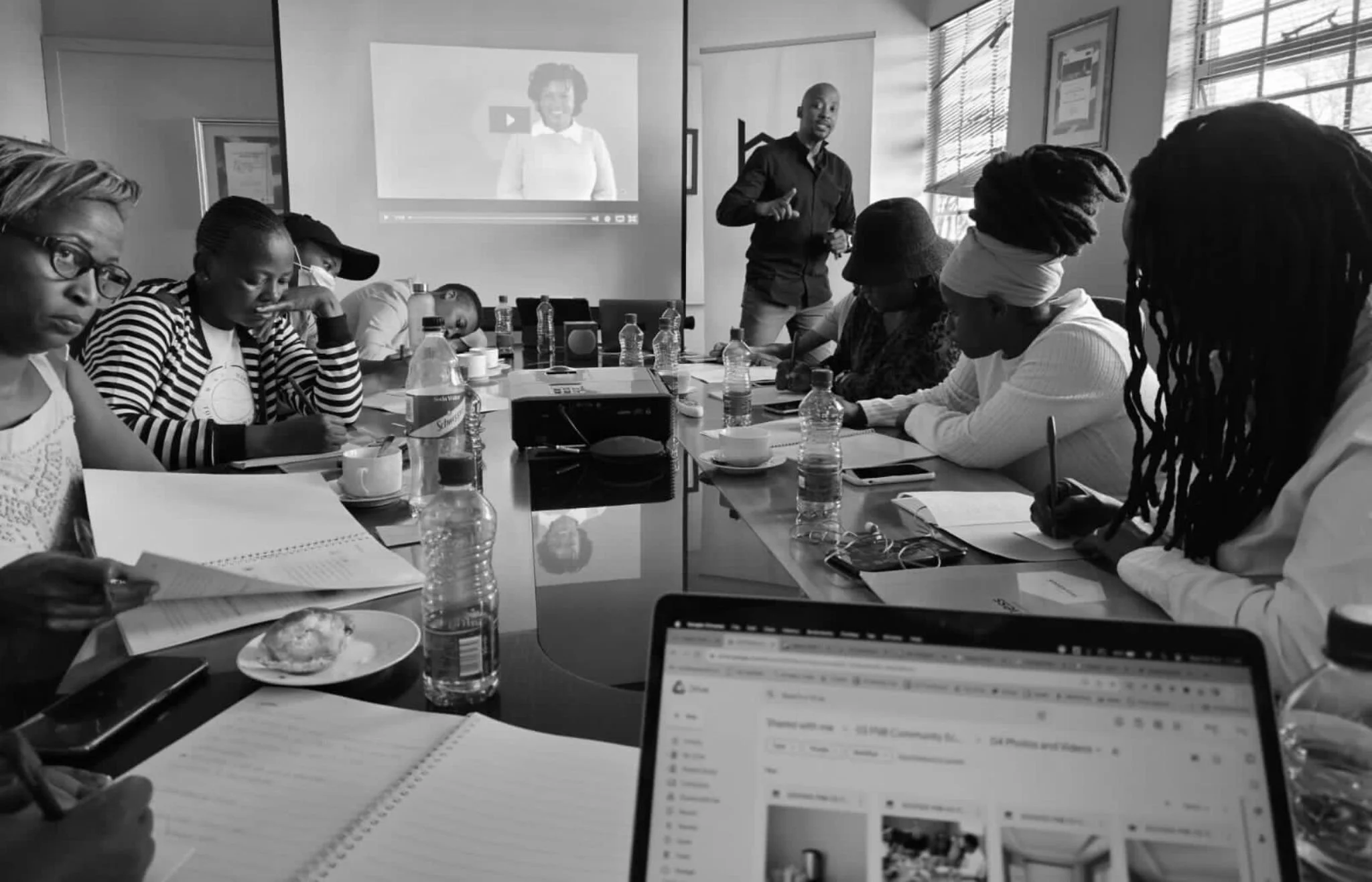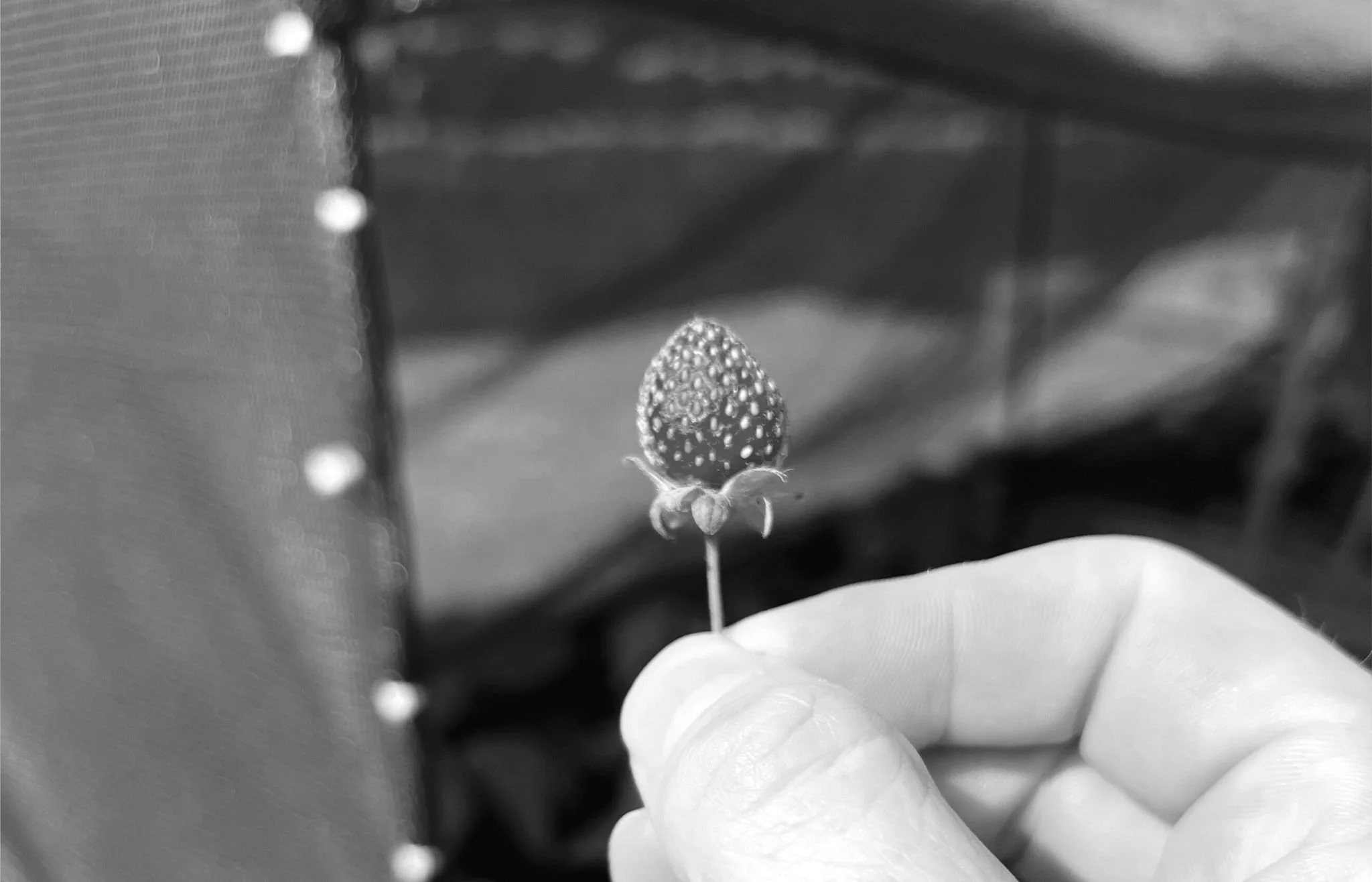The Gap Instinct
Have you heard of something called the ‘gap instinct’?
It’s where we deceive ourselves into thinking something is binary. We split things into easy-to-define opposites with a huge, empty gap in between.
This phenomenon has been well-documented by researchers worldwide, including Hans Rosling in his brilliant book Factfulness.
The gap instinct specifically informs much of the extreme messaging, alarmist headlines and polarising world-views that prevails in society worldwide.
This trap is becoming increasingly noticeable as media outlets fight for rapidly dispersing eyeballs spread thin across social and web platforms.
At Heavy Chef, to help us fight our own gap instincts, we’re hosting the inimitable Flux trio on the Heavy Chef stage for our annual Futurists events.
Dion Chang, Bronwyn Williams and Tumelo Mojapelo will be analysing the biggest trends around the world. We will be discussing how to navigate the unsettling headwinds that we’re facing in 2024.
The first session will be in Johannesburg on the 30th in two weeks.
Due to popular demand, we’ll be bringing these events to Cape Town and Durban this year.
Btw: The Johannesburg event is already sold out. If you want to join us in Cape Town and Durban, best you be quick. Tickets are selling out suuuuper fast - you can book here.
Our own Louis Janse van Rensburg will be sharing some of the findings from the Heavy Chef Foundation’s most recent research surveys, in collaboration with Xero.
One of our challenges is combating the ubiquitous gap instinct in the reporting of our own data. It is so difficult to avoid that even experienced researchers fall into this trap.
So why are these misconceptions around information, research and data so hard to change?
Consider, for example, one of the alarming stats that we contend with in South Africa:
Our youth unemployment rate is the second highest in the world. According to The Global Economy, we’re second only to Djibouti in East Africa, at a staggering 51% of individuals aged 18-24 without a salary.
Immediately after reading that I think, “Yooooooo, that means the situation is getting worse - not better.” I imagine that resulting crime is inevitable and the strain on our economy will grow exponentially as more young people enter the hiring age and fail to find jobs.
Then I realise that I have fallen into my own gap instinct.
Employed and unemployed.
Rich and poor.
Good people and bad people.
Everything is suddenly all in neat binary circles. This is my brain’s way of bringing clarity to the chaos.
While the urgency to resolve the challenge is true, the reality is far from it.
The facts on the ground reveal something very different. I believe this reality is more compelling than the simplistic and salacious media headlines.
My team at Heavy Chef works across different socio-demographic groups. In contrast to the media’s reporting of our struggles with unemployment, there are some interesting counter-narratives.
Deep in the trenches we see significant sub-sections that, while technically still unemployed, are working very hard to contribute to our society in the form of owner-run micro enterprises.
Every week, while running our Heavy Chef Entrepreneur Programmes, we’re educating small business owners, technologists, leaders and creatives.
Whilst many of these superheroes are not registered business owners or employed, they’re also not just ‘sitting around doing unemployed things’.
These (mostly) youngsters are designing, producing, interacting and transacting in their communities.
Yet, these individuals cannot be easily classified in any data. More importantly, they’re not accounted for in research report findings. They’re not even mentioned in the footnotes.
One report (in collaboration with one of SA’s big banks) waaay back in 2010 estimated there are around 5.9 million non-VAT paying micro-enterprises in South Africa alone.
This amounts to millions of people that fall into the ‘missing middle’. They lie somewhere in amongst a continuum of recognised business owners and job hunters.
They are not at the far end of some binary extreme. They lie in the gap between the extremes. Yet, somehow they don’t feature in any major media narratives.
So why do we fall into this trap?
Hans Rosling writes:
Human beings have a strong dramatic instinct toward binary thinking, a basic urge to divide things into two distinct groups, with nothing but an empty gap in between. We love to dichotomise. Good versus bad. Heroes versus villains. My country versus the rest. Dividing the world into two distinct sides is simple and intuitive, and also dramatic because it implies conflict, and we do it without thinking, all the time. Journalists know this. They set up their narratives as conflicts between two opposing people, views, or groups. They prefer stories of extreme poverty and billionaires to stories about the vast majority of people slowly dragging themselves toward better lives. Journalists are storytellers. So are people who produce documentaries and movies. Documentaries pit the fragile individual against the big, evil corporation. Blockbuster movies usually feature good fighting evil. The gap instinct makes us imagine division where there is just a smooth range, difference where there is convergence, and conflict where there is agreement. It is the first instinct on our list because it's so common and distorts the data so fundamentally. If you look at the news or click on a lobby group's website this morning, you will probably notice stories about conflict between two groups, or phrases like ‘the increasing gap.’
It is, in fact, this ‘increasing gap’ that Heavy Chef is excited about.
We believe our largest unemployed sector will become our largest employer sector. It is the magic in the middle that will save us.
This coming year, Heavy Chef is aiming to focus on resolving the real challenges in our society. At the same time we aim to convey realistic messages of the world around us.
We want to avoid being alarmist, without losing the urgency.
I am confident about the positive change happening in South Africa and Africa in 2024 and beyond.
I believe it will be the entrepreneurs (young and old) who deliver it.
Peace -






